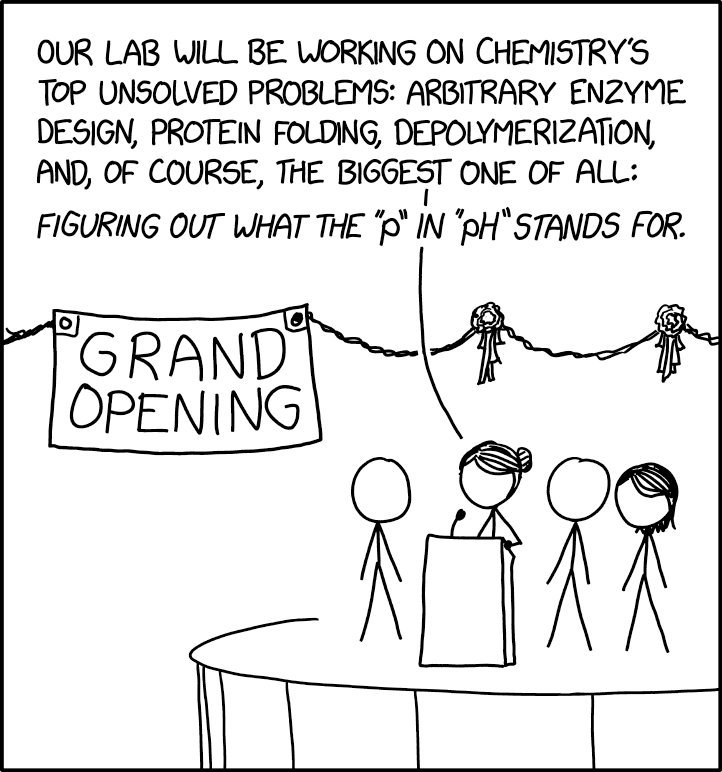this post was submitted on 09 Jun 2024
436 points (98.9% liked)
xkcd
11553 readers
91 users here now
A community for a webcomic of romance, sarcasm, math, and language.
founded 2 years ago
MODERATORS
you are viewing a single comment's thread
view the rest of the comments
view the rest of the comments

The xkcd breaks it down for us, basically we don't know because the person who coined the term never specified what it was. It's either: puissance, potens, or potenz. Which means potency in French, ~~Dutch~~ Danish and German, the three languages the scientists published in.
Dutch and Danish are not the same language. So yeah, the Danish scientist published in Danish, not Dutch.
Oh shit, my bad lol.
I was taught it meant 'potential' but that was 6th Grade in the US, so I guess it was all a lie.
Can the term potency also be used to refer to the exponent in English? Because that is what is meant by the terms in the other languages and I haven't come across that usage of the word potency in English
I think that's accurate, the exponent is what it's referring to, but the pedantic types are worried about what the p literally means.
Thank you. I think the decades-old chemistry-class flashback distracted me from thoroughly absorbing the full post!